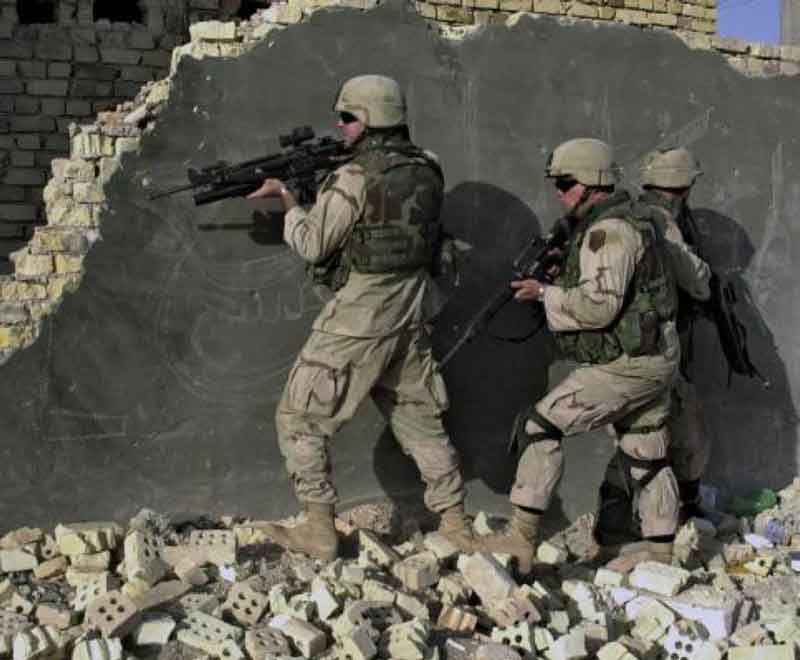The Second Gulf War
2003 – 2011
The invasion began on 20 March 2003, with the U.S., joined by the United Kingdom and several coalition allies, launching a war with a bombing campaign characterized by General Schwarzkopf as a “shock and awe.” Iraqi forces were quickly overwhelmed as U.S. forces swept through the country. The invasion led to the collapse of the Ba’athist government; Saddam was captured on December 2003 and executed by a military court three years later. However, the power vacuum following Saddam’s demise and the mismanagement of the occupation led to widespread sectarian violence between Shias and Sunnis as well as a lengthy insurgency against U.S. and coalition forces. The United States responded with a troop surge in 2007 to attempt to reduce the violence. The U.S. began withdrawing its troops in the winter of 2007–08. The winding down of U.S. involvement in Iraq accelerated under President Obama. The U.S. formally withdrew all combat troops from Iraq by December 2011.

The Bush 2 administration based its rationale for war principally on the assertion that Iraq possessed weapons of mass destruction (WMDs) and that Saddam’s government posed an immediate threat to the United States and its coalition allies. Select U.S. officials accused Saddam of harboring and supporting al-Qaeda, while others cited the desire to end a repressive dictatorship and bring democracy to the people of Iraq. After the invasion, no substantial evidence was found to verify the initial claims about WMDs. The rationale and misrepresentation of pre-war intelligence faced heavy criticism within the U.S. and internationally.
As a result of the war, Iraq held multi-party elections in 2005. Nouri al-Maliki became Prime Minister in 2006 and remained in office until 2014. The al-Maliki government enacted policies that were widely seen as having the effect of alienating the country’s Sunni minority and worsening sectarian tensions. In the summer of 2014, the Islamic State of Iraq and the Levant (ISIL) launched a military offensive in Northern Iraq and declared a worldwide Islamic caliphate, eliciting another military response from the United States and its allies. The Iraq War caused hundreds of thousands of civilian, and thousands of military casualties. The majority of casualties occurred as a result of the insurgency and civil conflicts between 2004 and 2007.
RECOMMENDED READING
In the Eye of the Storm: The Life of General H. Norman Schwarzkopf
by Roger Cohen and Claudio Gatti
A Pretext for War
by James Bamford
American Heroes: Stories of Faith, Courage, and Sacrifice From the Front Lines
by Stephen Mansfield
All books are available at our Museum Library which is open to the public every Thursday from 10am to 4pm.
